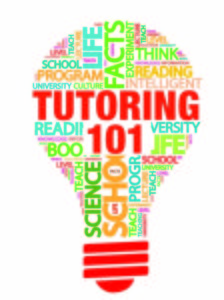In the Spotlight
TUTORING 101: Extracurricular learning has become a popular way to help kids find their academic groove, but is it helpful or just hype-ful?
August, 2018
Most parents would agree that education is everything. But now it seems to be everywhere, too. The days when classes were ‘out of sight, out of mind’ the second that late afternoon bell rang might well be slipping away as more parents turn to tutors to help their kids succeed in school. But when is a tutor truly needed, and how big of a difference can one actually make? Here are a few things to consider before hiring some after-school help.
Tutoring Today

Valued for the specialized, one-on-one instruction that tutors can provide, the tutoring biz has grown enormously over recent decades. By some estimates, it is now a billion-dollar industry in Canada. Along with growth has come an expanding range of what tutors and tutoring centres can offer.
“When I first started in the business 30 years ago, we got primarily remedial kids,” says Jim Argue, owner of the St. Albert branch of Sylvan Learning Centre. “The bulk of our business is still K to 9, but it’s a much wider range than what we offered 30 years ago.”
Yes, what used to be considered Breakfast Club-style detention for underperforming students has increasingly become holistic in its approach to learning. While remedial, subject-specific tutoring is still on the table, the focus now is more on what Argue calls ‘skills tutoring.’ This seeks to improve a student’s proficiency in the primary areas of reading, writing, math, and studying. “When a student is not doing as well as they can, it’s because they have weak basic skills,” Argue says. He gives the example of a student doing poorly in Grade 10 physics, for whom the issue may be more fundamental than physics. “If their basic reading levels aren’t at or above grade level, then the (physics) tutoring won’t stick because the problem’s not physics, it’s the ability to understand what’s being taught to them.” The goal, then, is to get those basic skills up to snuff—after which the subject-focused tutoring becomes more effective.
Motivated to Learn
The evolution of tutoring might speak to parents’ varied and complex motivations for seeking extra help. Some simply want to pull up their kids’ grades to an acceptable level, while others want their children to excel. Custom, also, can play a role, as a growing proportion of Canadian families have cultural backgrounds originating in regions where academic success is highly prioritized, and extracurricular instruction the norm. Yet another incentive is standardized, high-stakes exams; in fact, test preparation is a specialty of many tutors. While we don’t have the nerve-wracking nationwide university entrance exams that torment teens in some other countries, a lot still rides on high school diploma exams. And local students hoping to study in the U.S. will have to contend with the three-to-four-hour Scholastic Aptitude Test (SAT). Finally, all this demand for tutoring itself has a snowball effect—many parents now feel compelled to hire somebody so that their kids won’t fall behind their tutored peers.
Parents need to be aware, though, that just as there are various motivations, there can also be a range of causes for why a child isn’t performing well in school. Yes, it may simply be a case of weak skills in reading, writing, and arithmetic. But sometimes, a larger issue could be causing a student to struggle. An undiagnosed medical condition, conflict with a friend or teacher, lack of sleep, dietary issues, overscheduling, or even a learning disability are just a few possible culprits. In these cases, solely hiring a tutor may not accomplish much, and may just frustrate a child even more.
Making the Grade
That said, tutors can bring value to the table, and that’s the individualized instruction that often isn’t possible in a class of 25 or 30 students learning the same thing at the same level. A tutor is often better able to assess an individual student’s progress and adjust the pace as needed. Plus, some students may feel more comfortable asking questions of a tutor than they would in class. This level of face-to-face attention can be very beneficial for kids who aren’t grasping concepts as quickly as their school curriculum demands.
“It’s something we can’t do in the school system,” says Argue. “That’s the difference. When they come in to us, each student’s in a class of their own. The program’s designed specifically for them.”
Options in St. Albert
St. Albert is fairly well-represented for tutoring options. Several large, international tutoring chains have a presence here, including Sylvan Learning, Kumon Math and Reading, Oxford Learning, and Tutor Doctor. Smaller companies, like Success 2000 Study Centres, also cover the range of school subjects, with some focusing specifically on the core areas of reading, math, and science. Private tutors are another avenue, and can be located online through sites such as First Tutors. Rates will vary, but $30-$50 an hour is common for private tutors, while centres often charge a course-based fee. t8n
PISA World Ranking: How Do We Compare?
The Programme for International Student Assessment (PISA) tests 15-year-old students around the world every three years in math, science, and reading. These scores are then averaged to rank national education
systems, with 500 serving as a baseline for comparison. The latest edition was carried out in 2015, and here are the scores for the Top 10 performing countries:
- Singapore 551.7
- Hong Kong 532.7
- Japan 528.7
- Macau 527.3
- Estonia 524.3
- (tie) Canada 523.7
- (tie) Taiwan 523.7
- Finland 522.7
- South Korea 519.0
- China 514.3
- academics
- arithmetic
- challenges
- education
- help
- learning
- math
- read
- reading
- school
- skills
- tutor
- tutoring
- write
- writing












